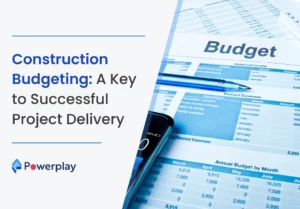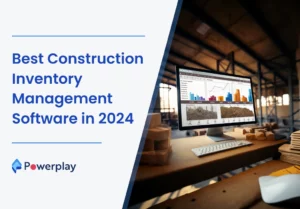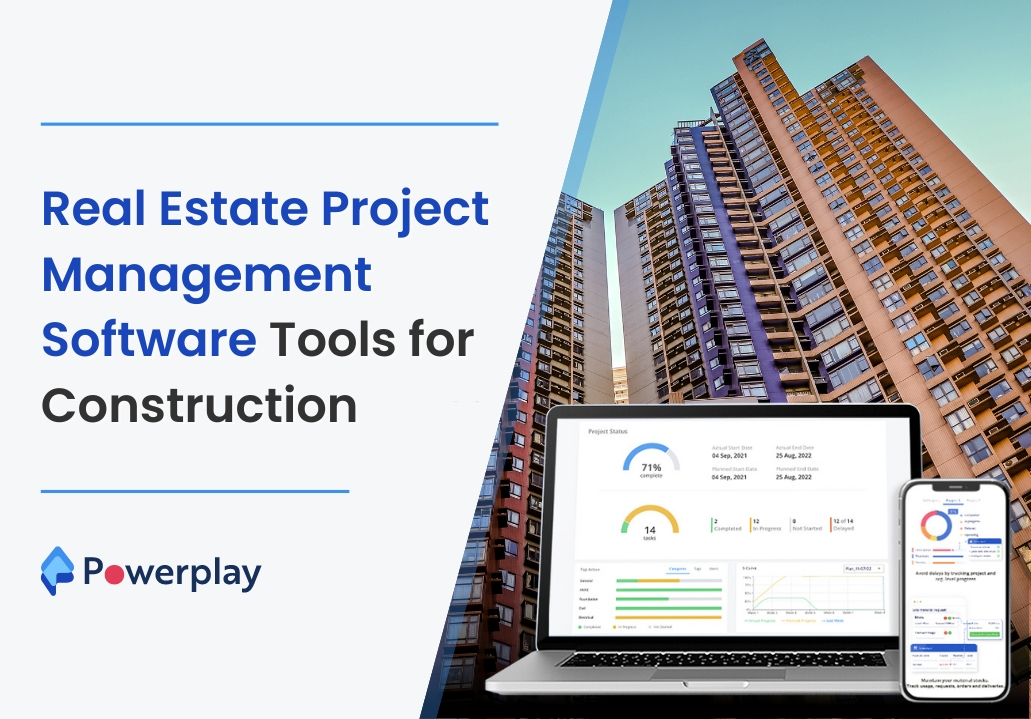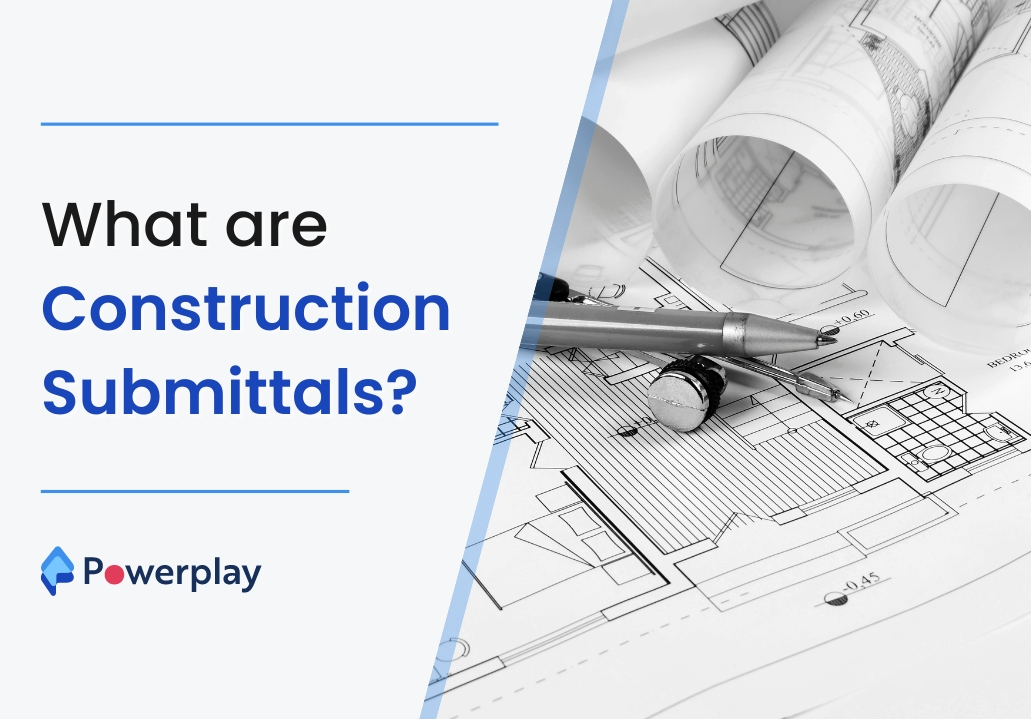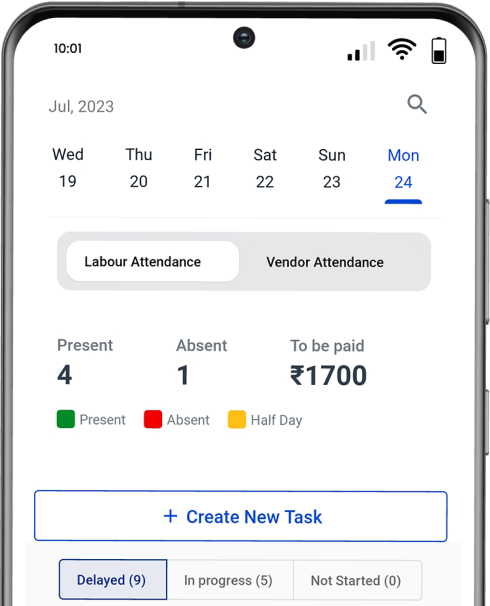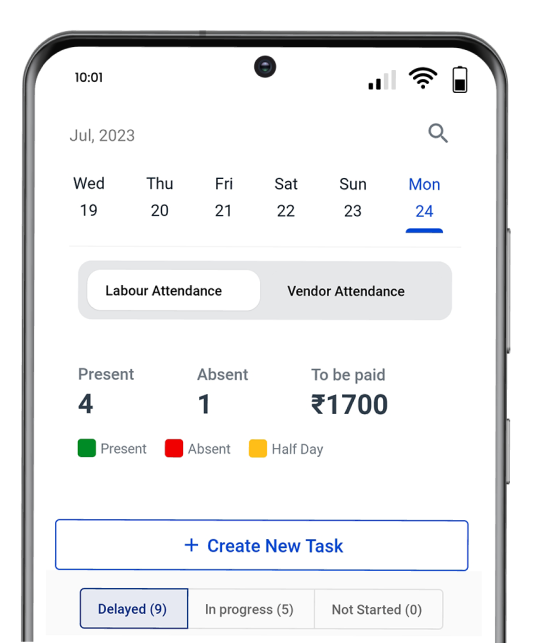What is Blockchain Technology in Construction?
-
Kumar Abhishek Anand
- October 11, 2023

Traditional methods of storing information involved a central repository from which data could be accessed from anywhere. This method is always prone to security attacks, that could alter or tamper with the transaction statements from the central repository.

Blockchain here solves this problem by acting as a database to store every transactional detail in a permanent decentralized chain of blocks having access to everybody in a peer-to-peer network and which is synchronized globally so that the blocks cannot be tampered with after being added to the chain. In other words, these chains of blocks or transactions can be authenticated by the public and cannot be hacked into. These blocks can be thought of to be a network of computer systems connected.
Blockchain is a technology that allows the distribution of digital information that can neither be altered nor copied/duplicated because it is unique in itself. The complete blockchain that has been built for a particular purpose can be considered to be a distributed ledger formed by the chained blocks of data. Not only does blockchain gets rid of the physical documents and processes involved but also performs the digital passing of papers without any human interaction as an additional function. It is just an automated bookkeeping method with advanced features that protect the information being documented in the digital books. Since its arrival, it has offered numerous opportunities for the construction industry to become more competent, clear, productive, and sustainable.

All in all, it is not just technological innovation but an impressive business tool that is capable enough to change the traditional construction industry ways to advanced modern methods.
Table of Contents
ToggleConcepts used in Blockchain Technology
Blockchain is fundamentally built with four main concepts:
1. Decentralized– Blockchain is a distributed ledger that allows simultaneous access to every user on the network to view and verify the information stored.
2. Secure- The integrity and security of the information are safeguarded by cryptographic codes.
3. Independent– The changes that take place inside the blockchain are confirmed and verified directly by the participants themselves. This prevents the need for a third-party authenticator or authorizer.
4. Smart– Blockchain can also be used to run additional business algorithms that allow automatic execution of specific commands and agreement on the behavior of an operation or asset implanted in the blockchain. These are commonly known as Smart Contracts that are used to automate the execution of specific commands so that all parties having access to the blockchain network can be immediately certain of an outcome without an intermediary’s involvement or any time loss.
Different types of Blockchain

A blockchain can typically be one of the three types mentioned below:
- Public Blockchain– It is an open network kind of blockchain that can be read, written, or participated in by anyone after downloading the appropriate protocols.
- Private Blockchain- A personal blockchain that is managed by an individual entity is a private blockchain. Only those participants who have been invited to access the network, get permission to read, write or audit the blockchain.
- Consortium Blockchain- It is a kind of a private blockchain except that it is managed by various entities. In this type of network, some parts of the network can be made open to the public.
Blockchain in Construction?

The construction industry has a lot riding on it not only for the infrastructural development of a particular region but also for the economic and social development of a country. At any given point in time, there is a huge sum of money and numerous implications related to all construction projects at stake. Due to its vastness and the complexity of the processes involved, the construction industry suffers from disputes and litigations. Disputes can arise very often over important stuff outlined in a project contract, which may harm the project outcomes. Blockchain comes into the picture at this instance to provide viable and easy solutions for this type of hassles related to the construction industry.

Blockchain can assist in streamlining the project management process by improving communication between laborers, vendors, builders, and every other communication point involved in a construction project. The construction industry is going through a digital transformation as well as an up-gradation in its business practices, where blockchain technology has the potential to greatly influence these changes and facilitate this transformation.

This technology is more than capable of driving the payment terms and project management systems to be more transparent and more effective in its fair practices. Blockchain can also systematize the procurement process greatly, which can certainly assist in reducing the complexity of the project and the high level of fragmentation associated with it. There may be a large number of stakeholders in a construction project such as workers, suppliers, companies, architectural firms, etc, among whom the project operations and administrations have to be coordinated. Several problems may arise in working as a team and consistently trying to coordinate actions between them due to the absence of a universal record of all transactions happening in a construction project between all parties. The records from individual entities for certain transactions may vary or conflict that may potentially lead to a breakdown of trust and communication, more so in case of a cost or time overrun when it is unclear who is responsible for the fiasco.
Benefits of Blockchain in the Construction Industry

1. Smart Contracts– Smart contracts in blockchain are being hailed as the future of the construction industry. A smart contract can be termed as a self-executable agreement between a buyer and a seller whose terms and conditions have been written into lines of code. It is surely going to make a mark in the construction industry because smart contracts reduce the necessity of intermediaries and save time and money on a great scale. Blockchain can be used to formulate smart contracts along with recording and upgrading transactions.

These contracts can be made self-executable by creating algorithms and codes as per the parties involved that allow updation, defining of rules, regulations, and penalties, etc according to the project they’re working on. The coded system would then work automatically to process these commands as per the project processes. Thus implementing this system not only revolves around disputes even before they occur and make the entire process more efficient but also helps in tracking the parties accountable for their errors.
2. Proactive Third Party Roles- Additional oversight is required when several subcontractors and service providers are hired for a construction project, and the overall increment in monitoring load demands the creation of new roles and responsibilities to look into the smooth execution of tasks and adherence to prescribed regulations. When blockchain technology is used the extra workload can be seamlessly integrated into the project system code. As the blockchain code is accessible to almost everybody on a construction project, everybody has access to crucial information that is needed during the project and no time is wasted in submitting requests for these processes.
3. Asset Maintenance- A major chunk of information about a construction project is lost in the entire process of the project before being submitted to the client. All asset and lifecycle data of the project can be stored and maintained on the distributed ledger of a blockchain. Combining blockchain with Building Information Modelling(BIM) can prove to be highly effective in enhancing project accountability and higher transparency. BIM can be used with blockchain to set up an immutable, digital model of the project within the blockchain that ensures the comparison of progress against the model.
4. Rapid Payments- Since the codes have already been set in the blockchain for a particular construction project, payments get processed almost instantaneously in a blockchain network on reaching a certain milestone embedded in the blockchain. In short, it streamlines the payment processes involved in a project which solves one of the most serious problems existing in the construction industry, which more than often causes the project to halt or in the worst case cease. Blockchain provides security and enables the tracing of information during payment processes. The framework of blockchain ensures that the tasks are completed as per specifications and zeroes the hassle of authorizing or demanding payments. Automated payment systems in blockchain reduce overhead and cost overruns.
5. Systematic Supply Chain- Construction projects can suffer huge blows to their working when the supply chain is not systematic. It can cause subsequent delays that may result in cost overruns, unhappy clients, reduced product quality, etc. Blockchain can be used to track resources from their origin until the final leg of its usage. This improves overall transparency and prevents any kind of disputes. Blockchain can assist contractors to identify and verify vendors and suppliers with unique digital-specific identifications that build the vendor’s reputation over time and can be used by users to hire them as per the experience and expertise required.
Blockchain is being researched by construction experts so that it can be used in as many ways as possible to manage construction projects and make the construction industry more efficient. Construction project management can be easily achieved using project management tools that have been specifically devised to make the construction process more smooth and efficient. Powerplay application proves to be an allrounder in construction project management that can be easily handled by all employees, clients, and contractors specific to a construction project. There are many applications out there for this purpose globally, but Powerplay is India’s first construction project management application that can be used to manage almost all types of construction projects going on in the country.
Share
Kumar is a digital content professional with more than 2 years of experience in Blog writing, copywriting and scripting. His passion lies in the art of creating convincing content that plays a major role in converting leads for SAAS businesses.
